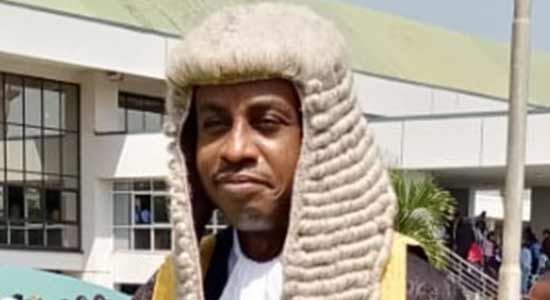By Ikenna Okoli, SAN
The recently concluded presidential
election in Nigeria has once again thrown up the ugly issue of who belongs to or owns any State in Nigeria. The presidential candidate of the Labour Party, Peter Obi, defeated the presidential candidate of the All Progressives Congress, Bola Tinubu, in Lagos State where Tinubu was governor for eight years.
It must be clear to any discerning person that for Peter Obi to defeat Tinubu in Lagos State, he must have garnered votes from people from different tribes and ages and religious persuasion. But what do we see? Some miscreants harassing and threatening Igbos and accusing them of voting against Bola Tinubu and therefore being ungrateful to their hosts. Even if all Igbos voted against Tinubu, which is not possible, it is not a crime and should not be a reason for anyone to be hounded in Lagos State.
It is obvious that we only pay lip service to the mantra of one Nigeria. Because Bola Tinubu, who is not originally from Lagos State, lost election in Lagos State, then Igbos should go back to the Southeast of Nigeria. We should make up our mind whether to remain as one country or separate countries. Even though a major problem may also be how many countries to carve out from the present Nigeria.
The Constitution of the Federal Republic of Nigeria 1999 opens with:
We the People of the Federal Republic of Nigeria:
Having firmly and solemnly resolved:
TO LIVE in unity and harmony as one indivisible and indissoluble Sovereign Nation under God…:
AND TO PROVIDE for a Constitution for the purpose of promoting the good government and welfare of all persons in our country on the principles of Freedom, Equality and Justice, and for the purpose of consolidating the Unity of our people: ..
Section 15 (2) of the Constitution posits that national integration shall be actively encouraged, whilst discrimination on the grounds of place of origin, sex, religion, status, ethnic or linguistic association or ties shall be prohibited.
Under the fundamental rights provisions of the Constitution, section 42 (1) (a) provides that a citizen of Nigeria of a particular community, ethnic group, place of origin, sex, religion or political opinion shall not, by reason only that he is such a person be subjected either expressly by, or in the practical application of, any law in force in Nigeria or any executive or administrative action of the government, to disabilities or restrictions to which citizens of Nigeria of other communities, ethnic groups, places of origin, sex, religions or political opinions are not made subject. Section 43 recognises the fundamental right of every citizen of Nigeria to acquire and own immovable property anywhere in Nigeria.
However, the Constitution in section 147 (3) provides inter-alia that in giving effect to the provisions regarding appointment of Ministers of the Government of the Federation, the President shall appoint at least one Minister from each State, who shall be an indigene of such State. This is in line and related to section 14 (3) of the Constitution which provides that the composition of the Government of the Federation or any of its agencies and the conduct of its affairs shall be carried out in such a manner as to reflect the federal character of Nigeria and the need to promote national unity, and also to command national loyalty, thereby ensuring that there shall be no predominance of persons from a few States or from a few ethnic or other sectional groups in that Government or in any of its agencies.
As commendable as the motive for including sections such as 147 (3) and 14 (3) of the Constitution may be, it is also the source of a lot of the divisiveness in Nigeria. The federal character principle is practiced in such a way that it totally negates common sense. Now take a situation where there two people who are from different States of origin by Nigerian prescription, say Anambra State and Zamfara State, and they live in the same neighbourhood in Lagos State. Their children attend the same primary school, but when they sit for the entrance examination to federal government colleges, the child from Anambra State may be required to produce a score of 140 while the lad from Zamfara State may only need to score 10 to gain admission. Is anyone suggesting that people from Anambra State are smarter than those from Zamfara State? If it is taken that Zamfare State is educationally disadvantaged, then anyone who lives in Zamfara State should take whatever benefit that is bestowed because of that status and should not be applicable to someone who is originally from Zamfara State but has the benefit of the education provided in Lagos State.
Again, how do we determine an indigene of a State? For example, if Ahmed’s great grandparents migrated from Gusau to Lagos and remained in Lagos without going back to Gusau and same for his grandparents and parents, should Ahmed be called an indigene of Lagos State or Zamfara State? So long as we keep referencing State of origin, we cannot achieve the desired unity. We should simply have state of residence and set a benchmark for the number of years to live in a State (preferably three years) to achieve residency status. That way you identify with where you live and pay your taxes and not some place you may not even know.
Ikenna Okoli, SAN

